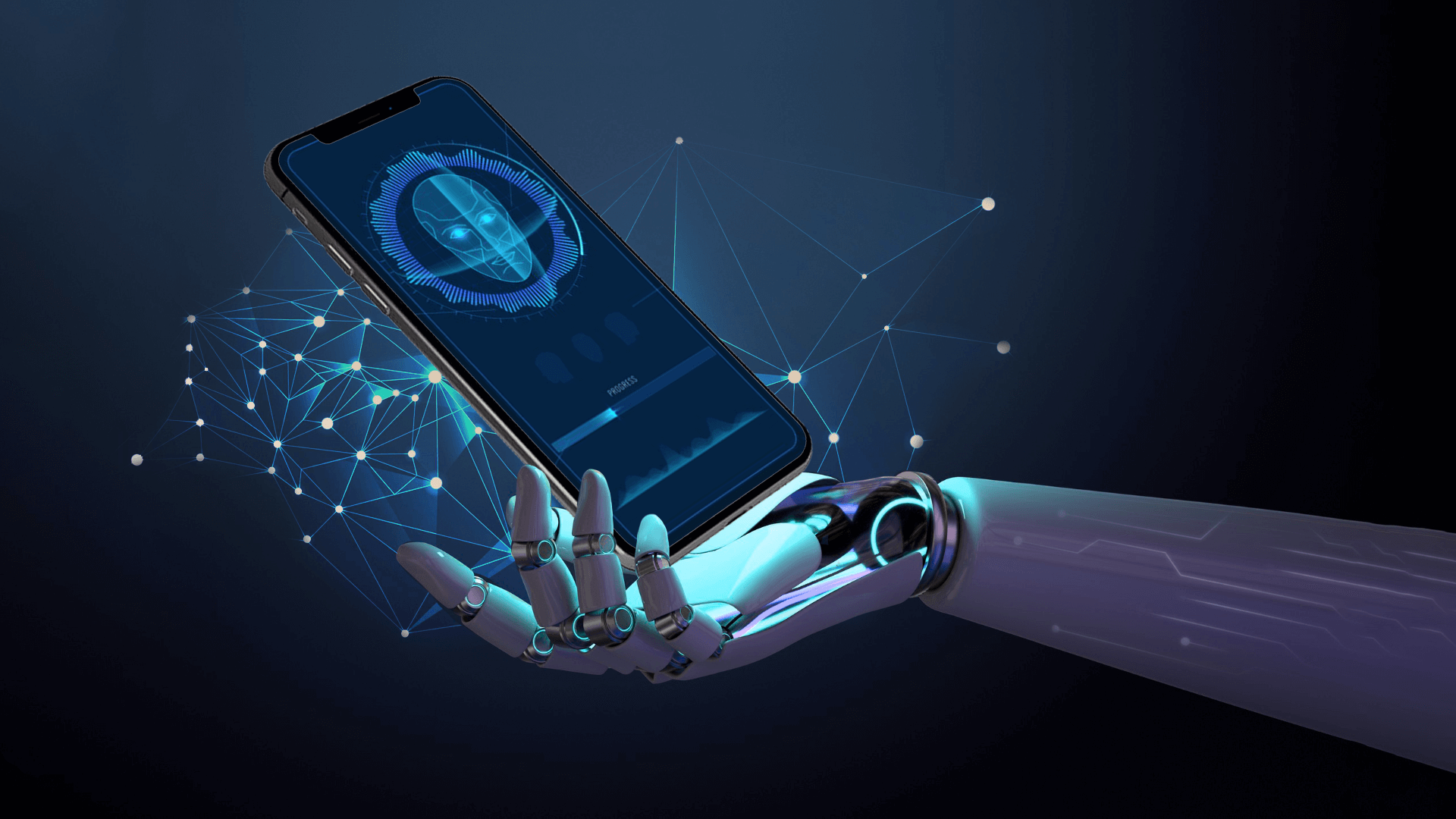
AI in app development: Benefits, risks, and solutions
February 05, 2025Have you noticed how artificial intelligence (AI) has seeped into nearly every facet of our lives? Whether it's personalised content recommendations or predictive analytics, AI is transforming the way we interact with technology. In app development, AI is no longer a luxury; it’s a necessity. According to a study by the World Economic Forum, 43% of businesses are expected to automate tasks with AI by 2025, reshaping industries and sparking a technological revolution.
This blog explores the transformative impact of AI in app development. We’ll discuss the benefits, challenges, and strategies to navigate this new landscape, ensuring you’re prepared for this AI-driven future.
Understanding AI in app development
AI in app development refers to integrating technologies like machine learning (ML), natural language processing (NLP), and computer vision into software to enable intelligent and adaptive functionalities. This goes beyond static programming—AI enables apps to analyse user behaviour, deliver personalised recommendations, and automate processes seamlessly.
From advanced features like voice recognition to predictive analytics, AI enhances user experience while offering businesses tools to innovate and stay competitive.
Read on: Customer loyalty through the mobile experience.
AI’s uncharted challenges and risks
AI brings innovation, but its integration is not without hurdles. Here are some key challenges:
1. For Individuals:
1. Information overload: Non-technical users often struggle with the abundance of complex AI concepts.
2. Skills gap: Without prior knowledge, navigating AI technologies can be daunting.
3. Job displacement: Automation risks making certain traditional roles obsolete.
2. For developers and enterprises:
1. Data quality issues: AI models depend on high-quality data; biases or incomplete datasets can skew results.
2. Complex algorithms: Understanding and deploying the right algorithms requires specialised expertise.
3. Infrastructure costs: Developing AI solutions demands significant computational resources and investment.
3. Ethical concerns:
Bias in AI systems and data privacy issues continue to raise ethical questions, particularly as apps handle sensitive information.
Solutions for overcoming AI challenges
1. Prioritise data integrity:
Invest in robust data collection and governance practices to minimise bias and enhance accuracy. Collaborate with data scientists to refine datasets.
2. Simplify AI integration:
Leverage user-friendly AI development platforms with pre-trained models and no-code tools to reduce complexity.
3. Build an ethical framework:
Audit AI algorithms regularly, ensure transparency, and educate users about data use to maintain trust.
4. Foster collaboration:
Encourage partnerships between developers, data scientists, and AI consultants to combine technical and domain expertise.
Pros and cons of AI in app development
Benefits:
Enhanced user experience: Tailored recommendations and intuitive interfaces increase user satisfaction.
Automation and efficiency: Repetitive tasks are streamlined, freeing resources for innovation.
Innovative features: Apps can incorporate cutting-edge functionalities like image recognition or chatbots.
Risks:
Resource intensive: AI requires advanced infrastructure and expertise, which can strain budgets.
Ethical challenges: Addressing biases and maintaining user privacy are ongoing concerns.
Data dependency: Apps relying on low-quality data risk inaccuracies and user dissatisfaction.
Reshaping workflows with AI
AI redefines app development workflows by promoting iterative processes and cross-disciplinary collaboration. Developers and data scientists must work together to blend creativity with analytical precision, building apps that anticipate user needs and solve complex problems effectively.
Collaborative approaches and industry best practices
Success in AI app development hinges on shared knowledge and adherence to best practices. Collaborative efforts foster innovation while addressing issues like data security, bias, and ethical dilemmas. Adopting standardised frameworks ensures smoother integration and long-term scalability.
Summing up, integrating AI into app development is a journey of transformation—filled with challenges but brimming with opportunities. By addressing risks proactively and leveraging AI’s full potential, developers and businesses can craft solutions that redefine the way we interact with technology.
The future of app development lies in embracing AI to create smarter, more intuitive applications that aren’t just tools but essential companions in our daily lives.
